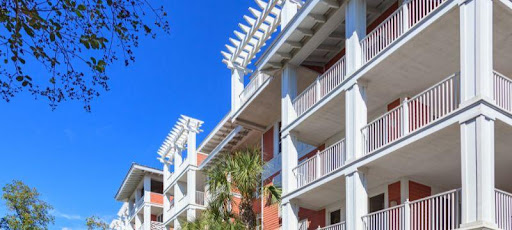There’s always so much going on when it comes to Florida’s flow of new residents from other states, current listings of properties being bought and sold, and the many avenues to explore when it comes to property in The Sunshine State.
While condos provide an excellent mix of part-ownership of your unit and property upkeep assistance from the condo association, Condo insurance and condo association insurance is essential for Florida residents who own or live in a condominium. Both policies provide different types of coverage and protect residents in different ways. Here are some of the advantages of each coverage type:
Condo Insurance:
Important for ALL condo unit owners – regardless of unit usage. Condo owners who live in their unit full-time, part-time, or rent to others should have Condo Insurance (HO6).
Protection for (your ownership) of the structure. It’s misleading to think that The Association’s policy will insure your unit. Your condo insurance policy (HO6) covers your unit. Agents like to say “from the walls-in” but official ownership of what belongs to you and what belongs to The Association will be found in your Association Condo Docs.
Protection for Personal Property: Condo insurance provides coverage for personal belongings, such as furniture, electronics, and clothing, in the event of theft, fire, or other covered perils.
Liability Coverage: Condo insurance also provides liability coverage in case someone is injured while on your property. This coverage can help pay for medical bills and other expenses associated with the injury.
Additional Living Expenses: If your condo becomes uninhabitable due to a covered loss, your condo insurance policy can help pay for additional living expenses such as hotel or rental costs.
Loss Assessment Coverage: (Currently required in Florida) In some cases, if a loss occurs in a common area of the condominium, The Association may assess unit owners to cover the cost of repairs. Your personal condo insurance policy can provide coverage for these assessments. It’s important to note that for this coverage to kick in, it must be a covered peril. Loss Assessment coverage will not cover routine maintenance of The Condo Association that is assessed to unit owners.
Condo Association Insurance:
Important for ALL Condo Associations – Regardless of size!
Protection for Common Areas: Condo association insurance provides coverage for the common areas of the building, such as the lobby, hallways, pool clubhouses, and exterior of the structure(s). This coverage includes the structure itself as well as the fixtures and equipment in common areas.
Liability Coverage: Condo association insurance also provides liability coverage in case someone is injured in a common area of the building. This coverage can help pay for medical bills and other expenses associated with the injury.
Protection for the Association: Condo association insurance can help protect the association from financial loss due to a covered event, such as a fire or hurricane. This coverage can help pay for repairs or rebuilding costs.
Loss Assessment Coverage: Condo association insurance can also provide coverage for loss assessments that may be levied against individual unit owners to cover the cost of repairs or rebuilding after a covered loss.
Condo insurance and condo association insurance provide different types of coverage and work together to protect both individual unit owners and the association as a whole. It is important for Florida residents to understand the coverage provided by each policy and to ensure they have the appropriate coverage in place to protect themselves and their property. With all this helpful insight to condo insurance, we also have new rules for Condo Associations in Florida.
Florida has new rules for condominium associations (COAs) to ensure buildings are safe to live in and properly maintained. COAs must conduct a physical Milestone Structural Inspection (MSI) every 10 years, with the first one required by 2024. Licensed engineers or architects must conduct the inspection, which will determine if a building is safe to live in. COAs must also conduct a Structural Integrity Reserve Study every 10 years, which examines funds set aside for repairs and improvements. COAs cannot waive financial reserves, and must use them as intended. These new regulations require immediate action, and COAs must consult with an experienced Florida attorney to ensure compliance and avoid legal issues. To read more about this, click here for the full announcement.
As a future or present condo owner, you must understand what you are responsible to cover. While your building may have a master policy, you need additional coverage to protect your possessions and to protect yourself from other losses and exposures.
If you are looking for a local insurance agency in Florida, Harris Insurance can help. We can help you find the best policies on condominium unit and association insurance. Since 1965, we pride ourselves in shopping every available market with every quote request. Contact us to learn about our condominium insurance and to get your quote started today.
LEGAL DISCLAIMER
Views expressed here do not constitute legal advice. The information contained herein is for general guidance of matter only and not for the purpose of providing legal advice. Discussion of insurance policy language is descriptive only. Every policy has different policy language. Coverage afforded under any insurance policy issued is subject to individual policy terms and conditions. Please refer to your policy for the actual language.




